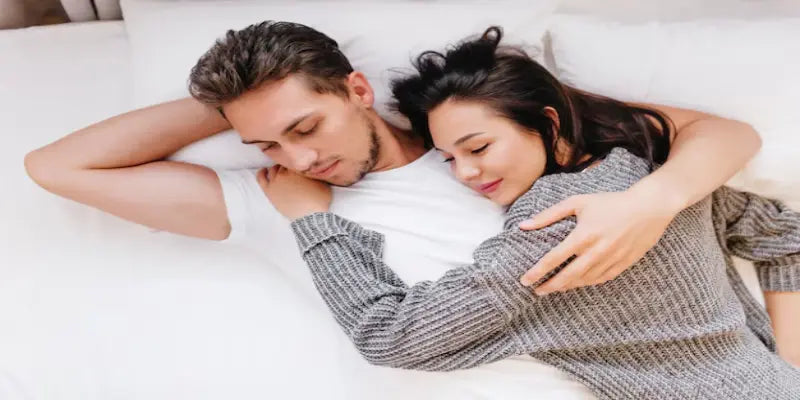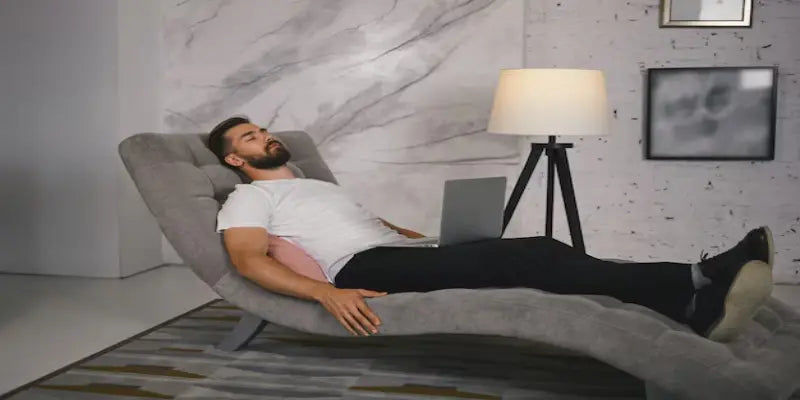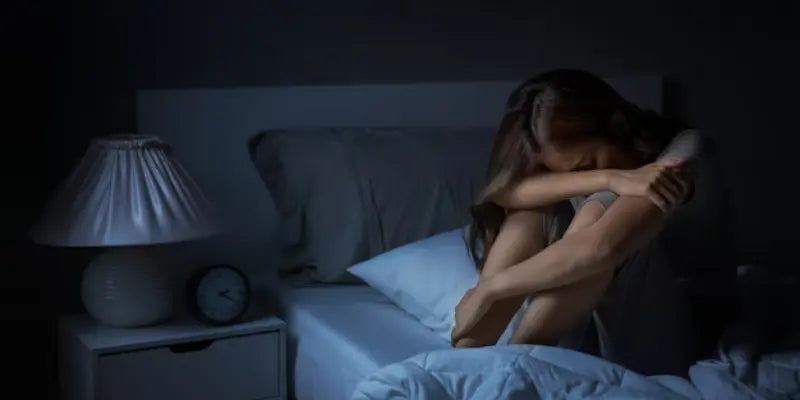
How to Sleep Fast in 5 minutes
When you’re struggling to get a good night’s sleep, it can feel like there’s nothing you can do. But there are ways to make sleep a little bit easier to come by. In this blog post, we will introduce you to five techniques that can help you sleep fast in just 5 minutes. From relaxation exercises to deep breathing exercises, read on for some tips that will help you get the sleep you need. There are a few things you can do to sleep fast in minutes.
Firstly, make sure you are comfortable. If your bed is too soft or too hard, it will affect how quickly and easily you can fall asleep. Secondly, avoid caffeine and alcohol before bedtime. These substances will keep you awake and prevent you from getting a good night's sleep. Finally, establish a regular sleep schedule. This will help you get into a regular sleeping pattern and make it easier to fall asleep quickly.
How to Sleep Faster in 5 minutes: Tested Strategies
If you're one of those people who struggles to get a good night's sleep, you can follow these tested strategies on how to sleep fast in 5 minutes or less. Always keep in mind, you need constant practice of any technique that works best for you to sleep faster at night.
The Military Method
The military sleep method was developed by army chiefs to help soldiers fall asleep in high stress situations. This method needs constant practice and effort. You need to follow these simple steps:
- Lay down in a comfortable position and relax every area of your face.
- Allow your arms to rest by your sides, lowering your shoulders first.
- Take deep breaths to calm your chest and the rest of your body.
- Begin with relaxing your lower half, working your way from your hips down each leg to your feet. To relax your thoughts, visualize a quiet place, such as the lovely countryside. If you have any intrusive thoughts, recognize them and try to move on.
Listen to Peaceful Music
Music has the ability to make us experience a wide range of emotions, from love to hate. It has been discovered that relaxing music for deep sleep can help you relax and sleep faster at night.
Consider creating a playlist that corresponds to an optimal 15 to 20 minute sleep latency window and listening to it every night to establish a routine for yourself. If you find music too distracting, some people recommend white noise for sleep.
Guided Imagery
Recalling a pleasant memory or envisioning a serene scene might help lessen daytime tensions and prepare your mind and body for sleep. To make yourself feel as if you are truly present in your imaginative environment, try taking long, deep breaths and focusing on the elements, such as sights, sounds, and smell. This allows you to sleep faster while avoiding negative thoughts.
Progressive Muscle Relaxation
To relieve physical tension, progressive muscle technique incorporates breathing techniques as well as muscular contraction and release. Progressive muscle relaxation works by gradually going through all of the major muscle groups to produce relaxation.
To practice PMR, follow the steps:
- Find a comfortable and peaceful spot to sit or lie down.
- Take a few calm breaths.
- Start with tensing your face muscles for 10 seconds before releasing and relaxing them.
- Next, tense and release your shoulders in the same way.
- Continue working your way around your body, tensing and relaxing each muscle group.
- Repeat for any places that remain tense.
- Allow yourself 10-20 seconds to relax before moving on to the next muscle group.
- Focus on how your muscles feel when they are relaxed.
Meditation
Using meditation techniques for restful sleep may help you fall asleep quickly. Mindfulness meditation, in particular, can help you sleep better. The core concepts of mindfulness include achieving calm by focusing on the present moment and letting go of judgment.
Mindfulness at bedtime can help you reduce anxiety and let go of negative feelings. When you first start practicing meditation techniques, you may notice that it takes longer to achieve a state of relaxation. As you become more comfortable with the technique, you will be able to relax faster and fall asleep.
Other Tips to Sleep Faster at Night
There are many factors that affect how long it takes to fall asleep, including age, sex, stress level and caffeine intake. However, there are some simple techniques that you can use to help you sleep faster.
- Avoid caffeine before bedtime as it is a stimulant and has the ability to keep you awake. If you want to drink coffee or tea before bed, limit yourself to small amounts and wait until after you're sleepy to consume them.
- The most important thing is to make sure your bedroom is dark and quiet so you can focus on what you need to do in the morning. Stay in the same position for at least 20 minutes before trying to sleep. This will help your body relax and prepare for rest.
- Practice relaxation techniques before bedtime. This includes visualizing relaxing scenes or taking deep breaths focusing on your breath. Try using some relaxation techniques before bed. These can include deep breathing exercises, meditation, or journaling.
- Make sure to establish a bedtime routine that you stick to every night. This includes winding down for 60 minutes before sleep, doing something calming like reading or relaxing music before bed, and finally turning off all electronics devices 30 minutes before bedtime.
The Benefits of Sleeping Fast
There are many benefits to sleeping fast. Sleep is the time when our bodies and brains can heal themselves. When we sleep, our brain produces serotonin, which helps us feel happy and reduces stress levels. Sleeping fast also regulates our hormones, which helps keep our mood stable and healthy. Plus, a good night's sleep can make you look younger because it improves your skin's health.
So here are some of the benefits of sleeping fast:
- Improved mood and stability: A good night's sleep makes you happier and more stable emotionally.
- Increased serotonin production: When we sleep, our brain produces serotonin, which helps reduce stress levels and promote relaxation.
- Healthy skin: How your skin ages can depend on your lifestyle choices and habits. Sleep is a key component to healthy skin, as it regulates your hormones and reduces wrinkles and age spots.
- Better cognitive function: Studies have found that insufficient amounts of sleep can impair your cognitive abilities such as memory recall and decision making skills. Sleep is essential for optimal brain function!
What is Sleep Deprivation?
Sleep deprivation is defined as a condition in which a person does not get enough sleep. Lack of sleep can have negative effects on both mental and physical health, including decreased reaction time, impaired reasoning and judgment, increased stress levels, and impaired memory.
There are many factors that can contribute to sleep deprivation, including chronic stress, work demands, caffeine consumption, irregular sleeping habits, and alcohol use. The most common type of sleep deprivation is short-term insomnia, which is characterized by difficulty falling asleep or staying asleep for more than an hour or two at a time. Long-term insomnia can be difficult to treat and can lead to depressive symptoms and other medical issues.
There are many methods for getting enough sleep, including going to bed and waking up at the same time each day, using a sleep calculator that is comfortable for you (rather than following a rigid bedtime routine), avoiding caffeine and alcohol before bedtime, practicing relaxation techniques before bedtime, using electronic devices in bed only if necessary (mercifully decreasing the amount of light entering the bedroom), using noise canceling headphones to block out noise from outside the bedroom while you're trying to fall asleep, using meditation or visualization techniques before bedtime to relax the mind and body.
Sleep hygiene; what you should avoid before bed and what you should do
People often ask us how they can sleep fast and deeply. Here’s a guide on how to sleep faster in 5 minutes:
When it comes to sleeping, there are a few key things you should avoid before bedtime. One of these is watching television or using screens in general close to bedtime. This type of light exposure has been shown to disrupt your natural sleep rhythm and prevent deep sleep.
Another big no-no is working on the computer or doing any other active work in your bedroom before bed time. Studies have found that working on a computer within an hour of going to bed can lead to poor quality sleep, as laptops emit blue light which has been shown to suppress the production of melatonin, which is responsible for regulating our body's circadian rhythms.
Why is sleep important for our mental and physical well being?
A good night's sleep is an important part of our overall well-being. It’s been said that sleep deprivation can lead to mood swings, decreased cognitive function, weight gain, and even heart disease. When we don’t get enough sleep, our brains are not able to process information as effectively and we are more likely to make poor decisions. Poor sleep also affects our ability to focus on tasks and can lead to irritability and unpleasant moods.
One of the ways that sleep helps us maintain a healthy mind and body is by restoring our energy levels. When we are tired, it’s harder for us to think clearly or handle stress. Sleep also helps us learn new things and concentrate better when we are fatigued.
What is a Good Pillow?
One thing that all pillow shoppers need to remember is that there are many different types of pillows on the market. It can be hard to decide which one is right for you if you don't know what you're looking for. A few tips that'll help you find your perfect pillow are below.
- Start by determining your sleeping position: If you're a side sleeper, choose a pillow that's shaped like a wedge. If you're an upright sleeper, choose a thicker pillow that supports your head and neck.
- Consider your comfort level: People have different tastes when it comes to pillows, but some people prefer soft pillows while others like firm ones. As a result, find the one that is most comfortable for you and provides support for your head, neck and spine.
- Think about your budget: Some pillows are more expensive than others, but there are definitely affordable options available as well. Just make sure that the pillow you choose is durable and will last for years.
Considering all of this, Sleepsia provides a variety of pillows designed to help you get a good night's sleep. The pillows are made with soft materials and have several features that make it ideal for falling asleep.
Conclusion
If you're having trouble sleeping and want to know how to get a good night's sleep, then read on! In this article, we'll teach you 5 easy tips that will help you fall asleep fast and stay asleep throughout the night. Whether you're struggling with anxiety or just need to get more shut-eye during the daytime so that you can function at your best in the evening, these tips will help. If you follow them religiously, chances are good that you'll be able to get a sound sleep every night and wake up feeling refreshed and energetic.
Thanks for reading!








